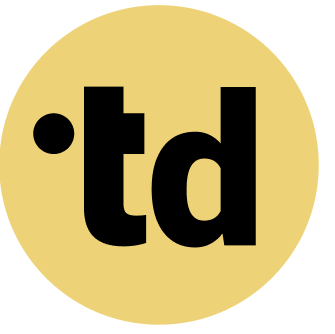Key Takeaways
With 27% of German companies now using AI, training team members to work with AI is an urgent business need, not a future luxury.
A major barrier to AI success is a skills gap, with 41% of German managers lacking qualified experts and 61% of employees wanting more training.
Effective human-AI collaboration relies on a structured framework focused on clear roles, continuous skill development, and transparent governance, which can be supported by tools like teamdecoder.
The promise of AI was a 10% boost in productivity, yet many teams are facing change fatigue instead. The hero's journey for today's Team Architects isn't about fighting dragons; it's about taming the digital chaos AI brings. This isn't just another tech shift; it's a complete re-architecting of how work gets done. We'll explore how to equip your team-your heroes-with the skills and structures to thrive. By focusing on clear roles and smart training, you can make bots and humans click, turning potential disruption into your greatest performance asset.
Practical Framework for Team Architects
As a Team Architect, you can apply these principles to your organization:
- Map Current State: Document existing roles and responsibilities using a tool like teamdecoder.
- Identify Gaps: Where are roles unclear? Where do humans and AI agents overlap?
- Define Clear Boundaries: Specify which tasks are handled by humans vs. AI agents.
- Create Accountability: Assign clear decision rights for each role.
- Iterate and Improve: Continuously refine based on team feedback.
Embrace the AI Surge in German Companies
AI adoption is no longer a future concept; it's a present-day reality, creating significant organizational development challenges. In Germany, some companies are now using AI, a massive jump from just 13. the previous year. This rapid integration means that 60% of European workers are already seeing their daily tasks change because of AI. The pressure is on for Team Architects to manage this transition effe
This isn't just a large-enterprise game; nearly half of German companies with over 250 employees have adopted AI, but so have small businesses. The goal for Many people is a productivity increase of more than a significant portion.han 10%. Yet, this fast-paced change introduces complexity and a high potential for role confusion. The key is to build a solid foundation for this new way of working. Building a hybrid team (humans and AI agents) requires more than just new software; it demands a new operational mindset.
Address the Critical AI Skills Gap
Despite rapid AI adoption, a critical readiness gap exists that can halt progress. A Deloitte study found that 41% of German managers face a severe shortage of qualified AI experts, and only 27% feel their teams are well-prepared for AI implementation. This isn't just a feeling; a staggering many businesses cite a lack of knowledge as the main barrier to adopting AI. This gap directly impacts your ability to operationalize your strategy.
Your team members feel this gap acutely, and they are ready to learn. A recent Bitkom survey revealed that many employees in Germany actively want more training in artificial intelligence. The desire to upskill is a powerful asset for any change management initiative. However, there's a disconnect, as only some companies believe they are well-prepared to offer this necessary training. This highlights the immediate need for a structured approach to augment human capabilities, not just implement technology.
Make Bots and Humans Click with a Training Framework
Effective AI integration is a human challenge, not a technical one. Starting February 2, 2025, the EU AI Act will legally require businesses to provide adequate AI literacy for their staff, making structured training non-negotiable. A successful program for training team members to work with AI should be built on a foundation of role clarity and continuous learning. It's time to ensure your *Teams Just Wanna Have Fun* by removing the friction caused by ambiguity.
Our Playful Tip: Start with a clear definition of roles and responsibilities. A study on human-AI teams found that success hinges on establishing clear roles, continuous skill development, and system transparency. Here is a simple, three-layer model to structure your training:
- Foundational AI Literacy: Offer a baseline for all employees, covering what AI is, how it's used in your company, and ethical guideline This addresses the to adult workers with limited AI understanding.g.
- Role-Specific Skills: Develop targeted modules for different departments. Your marketing team needs to understand AI content generation, while HR must learn about mitigating AI bias in hiring.
- Architect-Level Strategy: Equip leaders and Team Architects with skills in hybrid team governance, workflow design, and performance metrics for human-AI collaboration.
This structured approach ensures your human-AI collaboration workflows are built for success from day one.
Architect Insight for Hybrid Team Governance
As a Team Architect, your role is to design a system where humans and AI agents collaborate seamlessly. Research shows that generative AI is accelerating the move toward flatter organizational structures with more independent, hybrid teams. Your task is to create the governance that allows these new team structures to flourish. You can try teamdecoder for free to map out these new roles and dependencies visually.
Deep Dive: Effective governance for AI agent integration goes beyond rules; it's about creating clarity. The most common failure point is not the technology itself but the lack of clear protocols for how people should use it. By 2027, AI-driven workflows are expected to impact at least knowledge work in Europe, doubling productivity for those who get it right. Use a tool to define who is responsible for AI outputs, who provides oversight, and how except This clarity reduces the risk of errors by over a significant portion.rors by over 50%.
Our Playful Tip: Create a checklist for launching any new AI tool within a team:
- Define the AI's role: What specific tasks does it handle?
- Assign a human counterpart: Who is accountable for the AI's performance?
- Establish communication protocols: How does the team interact with the AI? Learn more about human-AI interaction protocols.
- Set review cycles: Schedule quarterly reviews to assess the AI's effectiveness and the team's workflow.
This structured approach prevents the common pitfalls that derail many AI initiatives.
Measure the Results of Effective AI Teaming
The payoff for structured AI training and clear roles is significant and measurable. Among European workers already using AI, 67% report that it helps them complete tasks more quickly, directly boosting efficiency. This isn't just about speed; it's about creating new capacity. For these workers, AI integration led to them taking on new or different tasks, fostering professional growth and innovation.
This shift transforms team structures and elevates human contributions. By automating routine tasks, AI frees up employees for higher-value strategic work that requires critical thinking and creativity-skills AI cannot replicate. Companies that master this hybrid model see a tangible impact on performance. Defining clear roles in a hybrid team is a core principle of modern seamless human-AI teamwork. With a clear system like teamdecoder, you can map these new responsibilities and ensure Many people understands their contribution. See our pricing.
Scale Your Hybrid Team for Future Success
Successfully training one team is the pilot; scaling that success ac With many new job roles in Europe expected to be AI-enabled by 2030, a scalable strategy is essential for long-term competitiveness.ial for long-term competitiveness. The key is moving from isolated pockets of excellence to an enterprise-wide capability in managing hybrid teams. This requires a repeatable toolkit that consultants and internal enablers can use to accelerate transformation.
A standardized approach to defining roles and responsibilities is the foundation for scaling. It ensures consistency and allows you to measure progress across different departments and projects. This is crucial for complex initiatives like task force manage By embedding a common language and framework for team design, you reduce friction and accelerate change by up to a significant portion.nd accelerate change by up to 30%. Now is the time to build your organization's capacity for this new era of work. Take the free online course "Workforce Transformation" to deepen your expertise. Start free course.
Try teamdecoder for free - shape your team and make change feel like play!
#TeamArchitecture #HybridTeam #AIin Business #OrganizationalDevelopment
More Links
German Federal Ministry of Labour and Social Affairs discusses digitization and AI in the context of securing skilled workers.
Federal Statistical Office of Germany (Destatis) provides statistical data related to the German economy or labor market.
acatech (German National Academy of Science and Engineering) offers a publication focusing on AI and industrial work.
Fraunhofer IAO describes its AI studios and experience workshops, designed for the participatory design of AI applications in companies.
Bertelsmann Foundation offers a publication discussing AI jobs in Germany, suggesting stagnation rather than a boom.
Bitkom (German Association for Information Technology, Telecommunications and New Media) provides a press release indicating that one-fifth of employees have received AI training in their jobs.
Federal Institute for Vocational Education and Training (BIBB) offers information related to vocational training and education in the context of AI.
German Pension Insurance describes KIRA, likely part of their digital strategy, potentially involving AI.
FAQ
How can I ensure our AI training is compliant with the EU AI Act?
To comply with the EU AI Act's requirement for AI literacy, provide documented, role-based training. Start with a general session for all staff on AI fundamentals and ethics, then offer specialized training for teams using specific AI tools, focusing on risks like bias and data privacy.
What is the biggest challenge when training teams for AI collaboration?
The biggest challenge is moving beyond technical training to address the human side of change. This includes overcoming resistance, defining new roles and responsibilities to avoid confusion, and building trust in AI systems. A clear framework for this change management is essential.
How does teamdecoder help with AI integration?
teamdecoder is a tool that helps Team Architects visually map out and clarify roles and responsibilities within new hybrid team (humans and AI agents) structures. It provides the clarity needed to manage human-AI workflows, ensure accountability, and build a scalable governance model for your organization.
What skills are most important for employees working with AI?
Beyond technical proficiency, the most important skills are critical thinking, ethical judgment, and communication. Employees must be able to evaluate AI outputs, understand potential biases, and collaborate effectively in a hybrid team where AI is a tool, not just a replacement.





